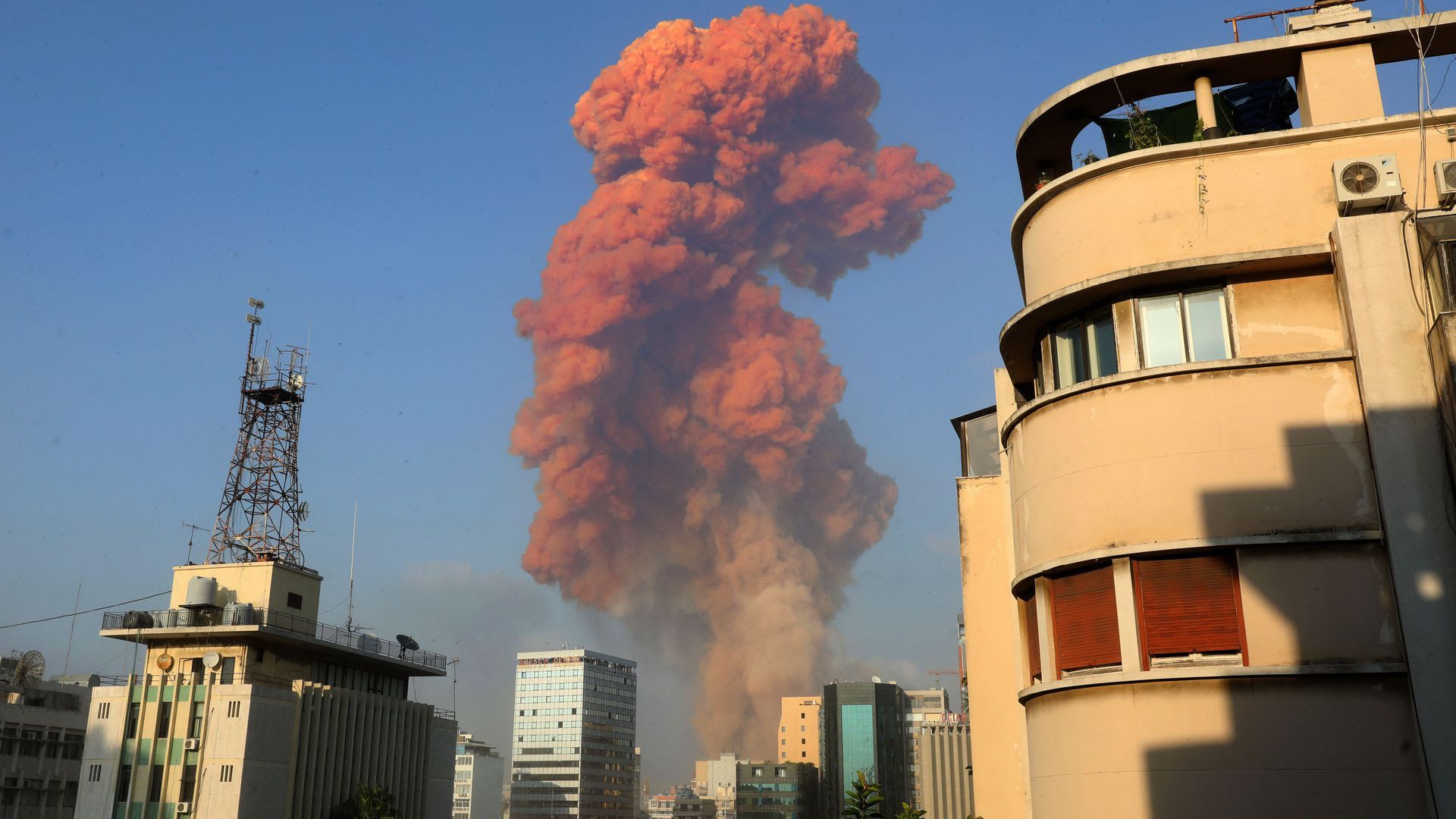Understanding the true scale of a nuclear bomb
Add Axios as your preferred source to
see more of our stories on Google.

The aftermath of the huge, non-nuclear explosion in Beirut. Photo: Anwar Amro/AFP via Getty Images
A massive explosion that rocked Beirut on Tuesday was so large that some observers initially wondered if it could be the result of a nuclear bomb.
Why it matters: Experts quickly determined the explosion was non-nuclear, and it appears to be the result of fire reaching a huge cache of ammonium nitrate. But the fact that even this enormous blast was just a fraction of the size of a small atomic bomb gives us some sense of the devastation that would result from a real nuclear detonation.
The Beirut explosion lacked two hallmarks of a nuclear detonation: a blinding white flash and a thermal pulse that would scorch those within the blast radius.
- Videos showed that the explosion did have the mushroom cloud most commonly associated with a nuclear bomb. But there's nothing specifically nuclear about the effect, known as Wilson clouds, which occur when humid air gets compressed and causes the water in it to condense.
The explosive power of the blast added up to approximately 240 tons of TNT, according to one estimate shared online by a nuclear expert.
- That is as big as it appeared in online video. The largest conventional bomb in the U.S. arsenal, the MOAB, has the explosive power of approximately 11 tons of TNT.
Yes, but: As terrible as it was, the Beirut blast was less than 2% the size of the Hiroshima bomb, which had the explosive power of 15,000 tons of TNT.
- The B83 nuclear warhead, the largest in the current U.S. arsenal, has 80 times the explosive power of Hiroshima's Little Boy, at 1.2 million tons of TNT equivalent.
- The death toll is of a different magnitude as well. As of Wednesday afternoon at least 135 people had been killed by the Beirut blast. At the low end of estimates, 70,000 people were killed at Hiroshima.
Of note: Historian Alex Wellerstein's NUKEMAP site allows you to simulate the effects of a nuclear strike anywhere around the world.
- I dropped the equivalent of a B83 bomb on my head in Brooklyn. The expected fatalities were more than 1.4 million.
